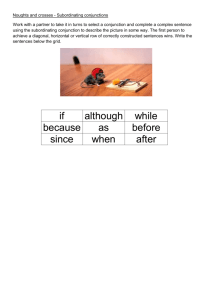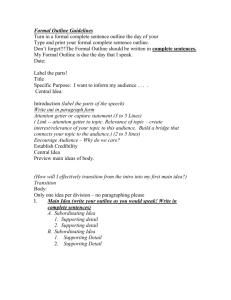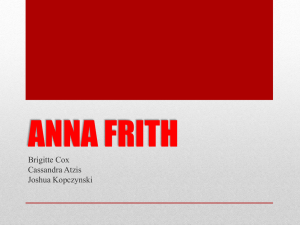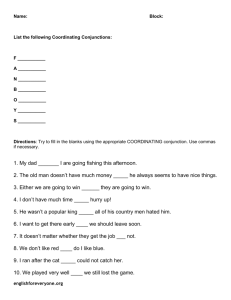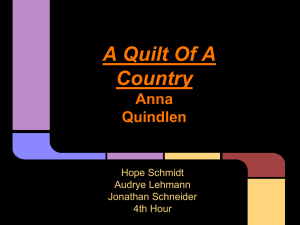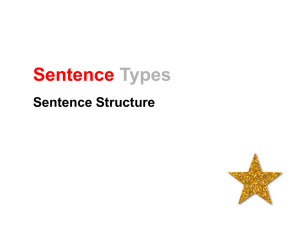Sentence Styles
advertisement
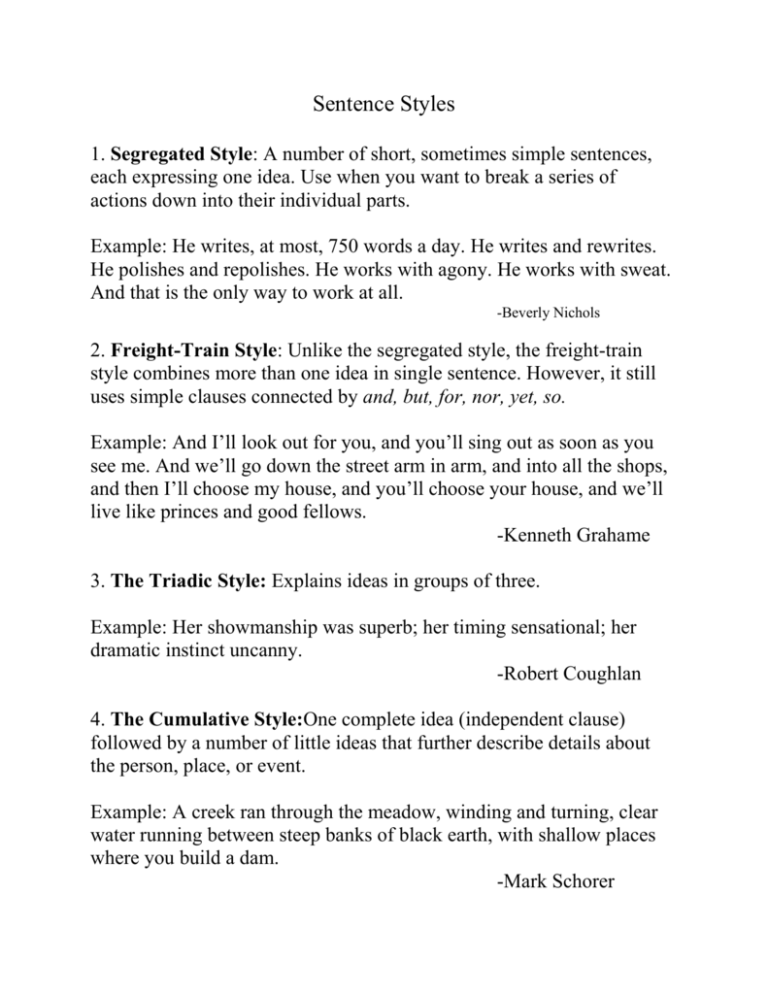
Sentence Styles 1. Segregated Style: A number of short, sometimes simple sentences, each expressing one idea. Use when you want to break a series of actions down into their individual parts. Example: He writes, at most, 750 words a day. He writes and rewrites. He polishes and repolishes. He works with agony. He works with sweat. And that is the only way to work at all. -Beverly Nichols 2. Freight-Train Style: Unlike the segregated style, the freight-train style combines more than one idea in single sentence. However, it still uses simple clauses connected by and, but, for, nor, yet, so. Example: And I’ll look out for you, and you’ll sing out as soon as you see me. And we’ll go down the street arm in arm, and into all the shops, and then I’ll choose my house, and you’ll choose your house, and we’ll live like princes and good fellows. -Kenneth Grahame 3. The Triadic Style: Explains ideas in groups of three. Example: Her showmanship was superb; her timing sensational; her dramatic instinct uncanny. -Robert Coughlan 4. The Cumulative Style:One complete idea (independent clause) followed by a number of little ideas that further describe details about the person, place, or event. Example: A creek ran through the meadow, winding and turning, clear water running between steep banks of black earth, with shallow places where you build a dam. -Mark Schorer 5. The Subordinating Style: The opposite of the cumulative style, the subordinating style places an incomplete idea at the front of the sentence, followed by a complete idea as this sentence itself demonstrates. Example: Finding herself exhausted, Anna plopped down on the bed and drifted to sleep. Example. Though she was a dear friend of mine, Anna had never been able to stay out late with me. Now You Try: Take 10 weak sentences from your narrative and rewrite them in the 5 new styles we’ve learned. You may add new ideas and make them more than one sentence as some of the examples show. When you’re done make the changes in your draft. (use loose leaf sheet to do this)
